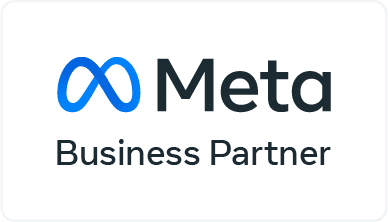One of the questions I get asked all the time is how the Google search engine works. This post is a short overview of how Google search works and how we can use this information to figure out how we can get better Google rankings.
If you don’t want to read this whole post, here is a short video from Matt Cutts explaining how Google works.
Crawling
The first step from Google is to crawl the web to discover all the pages on the web.
Google use software known as “web crawlers” to discover publicly available webpages. The most well-known crawler is called “Googlebot.” Crawlers look at webpages and follow links on those pages, much like you would if you were browsing content on the web. They go from link to link and bring data about those webpages back to Google’s servers. This is one reason links are so important to ranking well on Google and getting your page discovered.
The crawl process begins with a list of web addresses from past crawls and sitemaps provided by website owners. As Google crawlers visit these websites, they look for links for other pages to visit. The software pays special attention to new sites, changes to existing sites and dead links. This means that if you are providing new content often your website could get crawled more often and again this can help increase rankings.
Computer programs decide which sites to crawl, how often, and how many pages to fetch from each site. Google doesn’t accept payment to crawl a site more often for our web search results. They care more about having the best possible results because in the long run that’s what’s best for users and their business.
Indexing
The next step is to index all this data from the web crawls so Google can use the data from your website quickly.
The web is like an ever-growing public library with billions of books and no central filing system. Google essentially gathers the pages during the crawl process and then creates an index, so we know exactly how to look things up. Much like the index in the back of a book, the Google index includes information about words and their locations. When you search, at the most basic level, our algorithms look up your search terms in the index to find the appropriate pages.
The search process gets much more complex from there. When you search for “dogs” you don’t want a page with the word “dogs” on it hundreds of times. You probably want pictures, videos or a list of breeds. Google’s indexing systems note many different aspects of pages, such as when they were published, whether they contain pictures and videos, and much more. With the Knowledge Graph, Google continuing to go beyond keyword matching to better understand the people, places and things you care about.
Algorithm
For a typical query, there are thousands, if not millions, of webpages with helpful information. Algorithms are the computer processes and formulas that take your questions and turn them into answers. Today Google’s algorithms rely on more than 200 unique signals or “clues” that make it possible to guess what you might really be looking for. These signals include things like the terms on websites, the freshness of content, your region and PageRank.
Presenting the Results
A Google search doesn’t just dive into this index and fish around for what it needs. That would take a long time and return a lot of garbage. Several factors are used to present the most relevant search results, and this is where the Algorithm comes in. Some of these factors are known and others are kept confidential to thwart malcontents who might try to unfairly rig the system (read: spammers and other scum and villainy). So Google looks at the index from the pages it has crawled and runs this through its search algorithm to find the best content that answers your specific query.
The Future of Google Search
Google is become even more clever with its search. They are developing their algorithm to better understand the users real search intent. They are calling this semantic search. Semantic search is a data searching technique in a which a search query aims to not only find keywords, but to decide the intent and contextual meaning of the words a person is using for search.
Google are also presenting a wider variety of content in the search results than ever before. Check out this article from Dr Pete at Moz where he finds a huge range of different types of search results.
So How Can Knowing How Search Engines Work Help You?
Knowing how a search engine works in this basic sense means you can make some smart decisions about your search engine optimisation.
In the first instance you should make sure your site is able to be crawled by Google, If it cannot be crawled then it cannot be indexed, and therefore it cannot be found. There are many reasons why the site might be blocking Google bots, but it is usually the robot.txt file is giving the Google bot instructions not to crawl the site.
You can also help Google along by making sure you have a well designed site, not pretty graphics, but site architecture. Google can go through your site from link to link. You could also make sure you have submitted a site map to Google through webmaster tools.
Content is also important in ranking well. As you can see Google is ranking pages which offer unique, valuable content that answers a specific search query. So what is your customer asking? Answer this question or questions.
The Google search engine is a complex beast and they are constantly changing it to help deliver the best answers to people’s problems. This has hopefully enlightened you in a very brief way to how it all fits together.
Additional FAQs on How The Google Search Engine Works
How Often Does Google Update Its Search Algorithm?
Google’s search algorithm is a dynamic entity, constantly evolving with minor daily changes and significant updates rolling out several times a year. These updates, aimed at improving search accuracy, enhancing user experience, and combating spam, underscore the importance of staying informed. This knowledge is not just crucial, but empowering, as it allows you to adapt and maintain effective SEO strategies in the ever-changing digital landscape.
What Are Google Search Quality Raters?
Google employs human evaluators known as Quality Raters to assess the quality of search results. These raters, following strict guidelines, play a crucial role in a collaborative effort to ensure the results meet users’ needs and maintain high standards. While their ratings do not directly impact rankings, they provide invaluable feedback that helps Google continuously improve its algorithms.
How Does Google Handle Duplicate Content?
Google’s mission is to provide users with unique and valuable content. When it encounters duplicate content, it strives to identify the source and rank it higher while filtering out duplicates. This emphasis on unique and valuable content should inspire you to create material that stands out, using canonical tags and ensuring uniqueness on your site to avoid penalties related to duplicate content.
What Is Google’s Mobile-First Indexing?
Mobile-first indexing means that Google predominantly uses the mobile version of a website for indexing and ranking. This shift reflects the increasing use of mobile devices for searching. Ensuring your website is mobile-friendly is essential for maintaining and improving your search rankings.
How Does Google Personalize Search Results?
Google personalizes search results based on factors such as the user’s search history, location, device, and language settings. This personalization aims to deliver more relevant results for each user. However, users can opt out of personalization by adjusting their search settings.
What Role Do Backlinks Play in Google’s Ranking Algorithm?
Backlinks are a significant factor in Google’s ranking algorithm. They act as votes of confidence from other websites, indicating that your content is valuable and trustworthy. High-quality, relevant backlinks can improve your site’s authority and search rankings, while low-quality or spammy links can have the opposite effect.
How Does Google Treat NoFollow Links?
NoFollow links are links with a rel=”nofollow” attribute, indicating that they should not pass link equity or influence search rankings. While these links do not directly impact SEO, they can still drive traffic and increase brand visibility. Google also considers them when assessing the overall link profile of a website.
What Is Google Discover, and How Can I Optimize for It?
Google Discover is a personalized content feed that appears on the Google mobile app and the Google homepage on mobile devices. It presents users with content based on their interests and browsing history. To optimize for Google Discover, focus on creating high-quality, engaging content with eye-catching images and ensuring your site adheres to Google’s quality guidelines.
How Does Google Handle Different Languages and Regions?
Google’s algorithms are designed to provide relevant results for users in different languages and regions. They use various signals, such as language tags, hreflang attributes, and user location, to deliver localized content. Optimizing your site for multiple languages and regions can help you reach a broader audience and improve your search visibility.
What Are Rich Snippets, and How Can I Implement Them?
Rich snippets are enhanced search results that provide additional information, such as reviews, ratings, and event details, directly in the search results. Implementing structured data markup (schema.org) on your website can help Google understand your content better and display rich snippets, potentially increasing your click-through rates.






